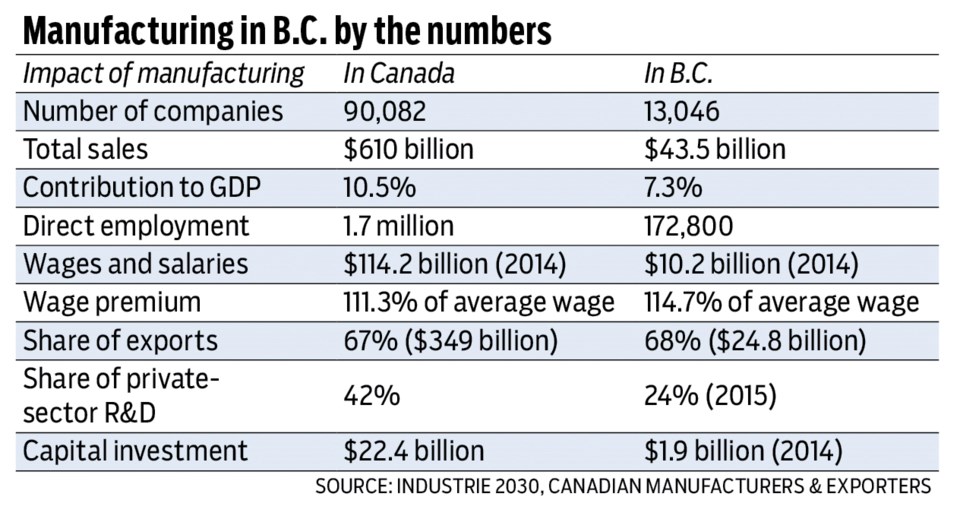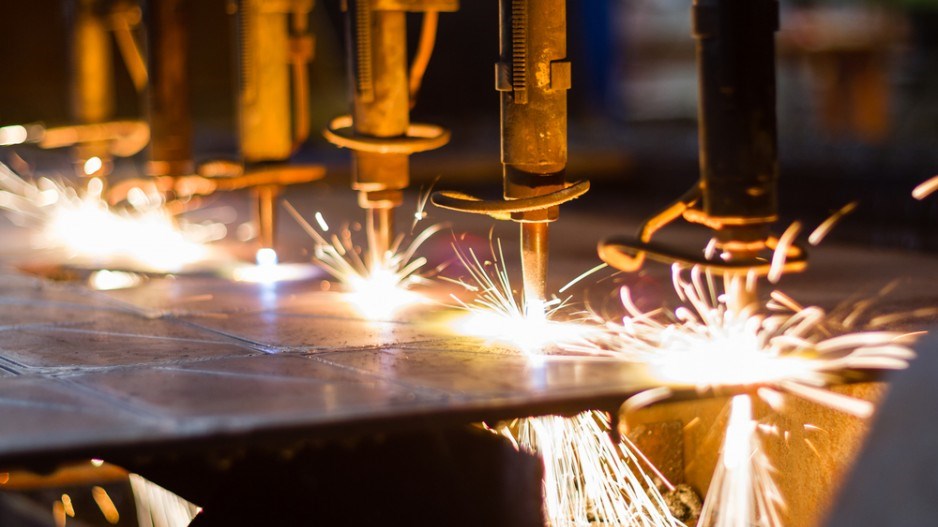B.C.’s manufacturing sector is heading into 2017 in a “wait-and-see mode.”
That’s the view from Andrew Wynn-Williams, divisional vice-president of the Canadian Manufacturers & Exporters’ (CME) B.C. chapter, given U.S. president-elect Donald Trump’s protectionist, anti-globalization stance.
“Obviously the thing that everyone is worried about is the new president,” Wynn-Williams said. “But one of the advantages that we as a country have is that we don’t make stuff for the U.S.; we make stuff with the U.S. There are so many cross-border companies in Canada that it would be very detrimental to both the U.S. and Canada to try and dismantle that relationship.”
Wynn-Williams said outside of the U.S. political posturing, the industry is expecting “modest growth” for the next few years. A recent CME report on manufacturing in the Vancouver region estimates that 22,000 new workers will be needed for the sector over the next nine years. That would expand the industry’s workforce by 28%. The report also noted that Vancouver has a highly diversified manufacturing sector, with food production (20%) making up most of the region’s jobs, followed by fabricated metal products (9%), machinery (8%) and wood products (7%).
Wynn-Williams said the diversity gives the sector a resilience that has protected it from the global sector’s volatility over the past few years.
“I think where we tend to be doing really well these days is in specific niche areas,” he said. “Specialty products … [are] our sweet spot right now. So it’s really hard to say, ‘Oh, this one sector is doing well,’ because if you look at it, we’re having success in a variety of sectors.”
Between 2014 and 2016 Metro Vancouver manufacturing grew by 6.4%, and it is expected to increase 3.5% in 2017. Job growth over the next few years is expected primarily in management positions and labour within the food and beverage product sector.
Wynn-Williams said people can also expect chatter to increase concerning the industry’s increasingly close association with another sector.
“One of the really interesting things, particularly for the kind of hiring we’re doing, is this coming together of manufacturing and technology. So you look at people saying the technology industry is huge in B.C.; well, those are technology jobs, but a lot of them are also manufacturing jobs.”
A recent KPMG report also noted the need for Canadian manufacturing to “evolve the supply chain.” The report stated that innovation and technology will be crucial to companies in the face of growing global competition.
“No longer will companies simply compete against other companies, but total supply chains will compete against other supply chains.”





